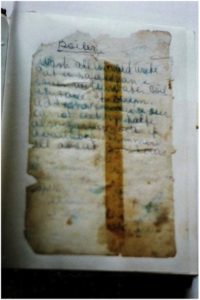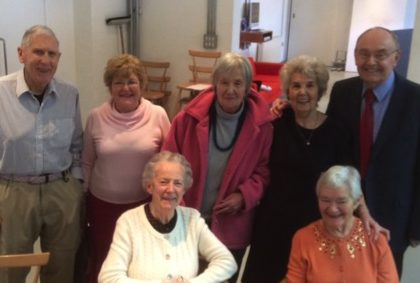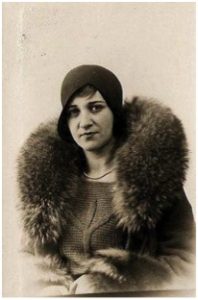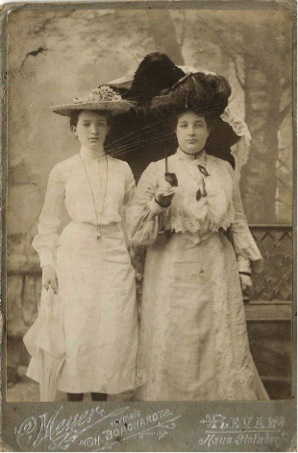The other night, attracted more by the venue than the occasion itself (a free bar is no attraction to a non-drinker) R and I went to a reception at the Francis Crick Institute. The event was to celebrate and promote the activities of the UCH Cancer Fund and as many of those who attended, including me, owed their lives to the UCH oncology unit there was a built-in sense of well-being and camaraderie.
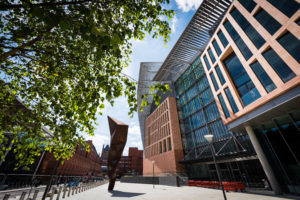
Exterior view of the Francis Crick Institute. Photograph by kind permission of the Wellcome Trust.
Even so, standing still is hard on the feet and the back and, the moment the speech-making was over, R and I moved to the outer edge of the crowd and into the vast and beautiful space that stretched out beyond it. Here was a field of glass exhibition-stands each one of which, in exquisite pictorial detail, told the story of historic and on-going medical research with wonderfully lurid pictures of the killer bugs and modest photographs, often taken in a laboratory setting, of the indomitable men and women the bugs are up against.
My immediate thought was that I must bring my nine-year-old grandson here. I cannot imagine a child who would not be inspired by the exhibition, and am already wondering what QUESTION about the Meaning of Life he will write on the card that one is invited to fill in and which is then displayed on the wall of windows.
Reading these messages distracted me from studying the building itself, but it was not time wasted. Like the prayer requests in a Spanish church which reveal the lives of the congregants so, in this secular shrine, did these votives tell us about ourselves. Why me, not someone else? How did the world begin? Where do we come from? And my favourite, which had been transcribed for a five-year-old: Why is a five-year-old elephant so much bigger than me?
By now, I was flagging and we turned to go. The crowd was thinning and I caught a glimpse of the doctor who, twenty years back, had been the person who in the whole world I was most pleased to see. And I thought of all the lives he had saved since then, and also of one life which he and his colleagues had been unable to save, though they had done everything within their power.
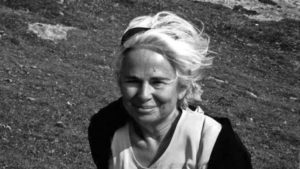
My friend Ellen.
Even so, my QUESTION and, I am sure, hers too (albeit rhetorical) would have been: How can we thank you enough?
As R and I stepped out of the building and back into the self-destructing world, we were buoyed up by having seen great work being carried out in a great building. It seems that it isn’t all bad, after all.
Ellen Meiksins Wood, 1942-2016.
